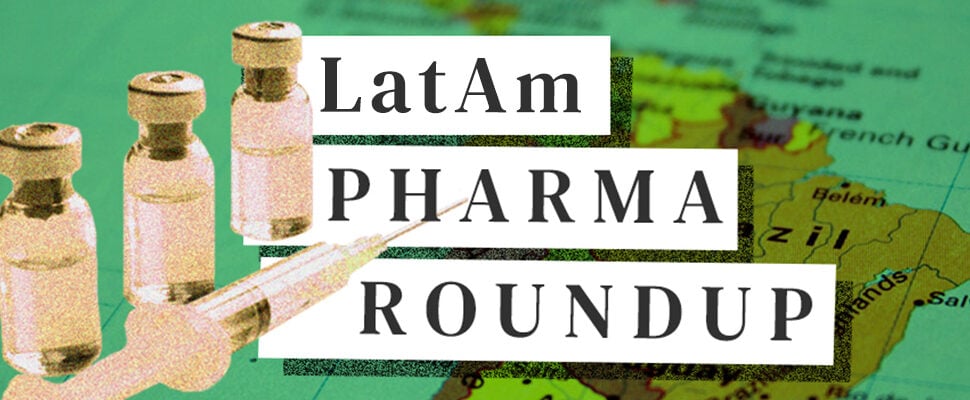An overview of some of the biggest stories from Latin American pharma and healthcare, including Brazil’s rollout of dengue vaccines following a sharp increase in cases; the Brazilian regulatory agency ANVISA’s strategy to become a WHO-listed authority andAspid Pharma’s agreement with Institute for Research on Obesity of the Tecnológico de Monterrey.
Brazil rolls out dengue vaccines as cases rise sharply (Financial Times)
Brazil is scrambling to roll out new vaccines against dengue fever after the number of cases of the mosquito-borne disease more than quadrupled from last year’s rates. The sharp increase, which has prompted several states to declare health emergencies and the Rio de Janeiro government to declare an epidemic, came after health officials warned of a rise in cases due to warmer weather from climate change and the El Niño weather pattern.
The country has reported more than 700,000 cases so far this year, up sharply from the 165,000 cases in the same period of 2023. More than 100 deaths have been reported from the virus, which is transmitted by mosquitoes and can cause high fever, muscle pain and internal bleeding.
Health in Brazil: 1 year of Lula (The Lancet)
12 months after his return to the presidential palace, Brazil’s Lula has focused on resurrecting and restrengthening health programmes. During his election campaign, President Luiz Inácio Lula da Silva promised to increase health-care investment in Brazil, aiming to end long waiting lists in the Unified Health System (SUS), resurrecting the Mais Médicos programme, and reversing declines in vaccination coverage. A little over a year later, how do doctors and health agents view his accomplishments?
Brazil, Mexico lay out regulatory priorities (Regulatory Focus)
The Brazilian Health Regulatory Agency (ANVISA) has published its priorities for the next three years. In its most recent strategic plan, covering 2024-2027, the agency says it will seek recognition from the World Health Organization (WHO) as a WHO-listed Authority, in part to facilitate Brazilian manufacturers’ access to other markets.
ANVISA also said it seeks to adopt of the Identification of Medicinal Products (IDMP) standard, to continue its efforts for medical device Unique Device Identification (UDI); and modernize its data platforms, among other stated goals, several of which have been carried over from its 2020-2023 strategic plan.
PAHO partners with St Jude Children’s Research Hospital to improve access to medicines for childhood cancer in Latin America and the Caribbean (Pan American Health Organization)
The Pan American Health Organization (PAHO) has announced a new partnership agreement with St. Jude Children’s Research Hospital to help strengthen equitable access to cancer medications for children in Latin America and the Caribbean.
The four-year agreement will focus on the provision of quality medicines through the PAHO Strategic Fund and support technical cooperation with Member States to strengthen childhood cancer care services and medicine management systems. It aims to improve outcomes for childhood cancer, which affects more than 47,000 children and takes over 12,000 lives each year in the Region.
TEC de Monterrey and Aspid Pharma join forces to fight cardiovascular diseases (Corresponsables, in Spanish)
Cardiovascular diseases have been the leading cause of death in Mexico, which is why the Institute for Research on Obesity of the Tecnológico de Monterrey and the Mexican company Aspid signed a collaboration agreement for the first time to tackle cardiovascular diseases, particularly heart failure.
The main focus of the agreement between the two institutions is heart disease, after the INEGI indicated that in the period January-June 2023 alone it was the leading cause of death nationally, with 97,187 cases. This was followed by diabetes mellitus, with 55,885 cases.
Bolivia: agreement between CIFABOL and government (Pharmabiz.net, in Spanish)
Access to foreign currency for pharmaceutical production is not a problem exclusive to Argentinean laboratories. In the region, Bolivia is another country where local companies have been facing a similar scenario for some time.
In this regard, the Ministry of Economy and Public Finance and the Chamber of the Bolivian Pharmaceutical Industry (CIFABOL) have just found a transitional solution. The parties agreed that Banco Unión, a state-owned financial institution founded in 1981, will provide the dollars to secure imports of the most pressing inputs.
Disparities revealed in Latin American patients’ access to innovative medicines (DiarioSalud, in Spanish)
The Latin American Federation of the Pharmaceutical Industry (FIFARMA) launched the second version of the FIFARMA W.A.I.T. (Waiting to Access Innovative Therapies) Indicator 2023 for Latin America. This study analyses the time Latin American patients wait to access innovative medicines for cancer and orphan diseases.



